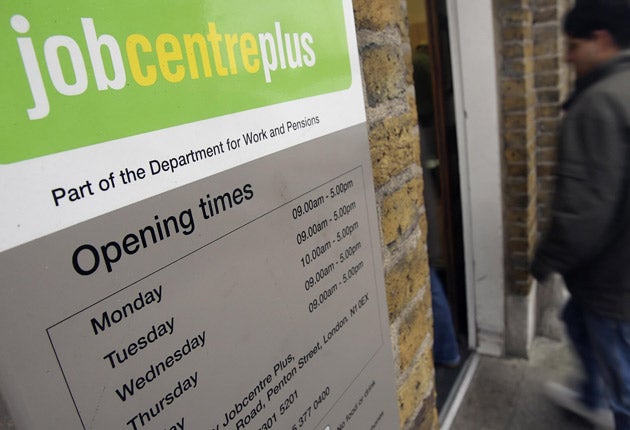TUC leader warns of 'mass unemployment'

Cutting public spending would provoke a "double dip" recession, raise unemployment to more than four million and spark the threat of industrial action by millions of workers, union leaders warned today.
One senior official also reminded politicians that the last time the UK suffered "slash and burn" economics, there were riots on the streets.
A return of mass unemployment would have "terrible" social effects and could lead to Britain being "broken", said TUC general secretary Brendan Barber.
With public spending emerging as a key issue ahead of next year's General Election, unions spelled out their concerns on jobs and warned of industrial and social unrest.
Mark Serwotka, general secretary of the Public and Commercial Services union, said he feared there will be "huge" spending cuts, whichever party wins the election.
"Cuts will be quicker and deeper under the Tories, but there will be no golden era under Labour," he told a news conference in Liverpool, ahead of the TUC Congress, which opens tomorrow.
Mr Serwotka said the current debate about the state of public finances was merely preparing the ground for a "massive onslaught" on spending.
Civil servants had suffered huge job cuts, privatisation and attacks on their pay and conditions under Labour and were facing fresh moves to reduce their pensions, he said.
Mr Serwotka will this week press other public sector unions to co-ordinate any industrial action to protect jobs and services.
Mr Barber said cutting public spending to reduce the current level of deficit would lead to a "double-quick, double dip" recession, which could lead to unemployment topping four million.
"Cut the stimulus off and the economy would go into decline again. Public spending cuts will provoke a double-quick, double dip recession.
"Unemployment could well exceed four million and it would take many years before there was any chance of returning to anything like full employment. That would scar for life a whole generation of young people."
The TUC published a new report analysing the effects of possible public spending cuts on the 25 local authorities with the highest levels of unemployment.
The study found that areas such as Liverpool, Leicester and Middlesbrough would suffer 40% increases in unemployment.
The report also warned that a 10% cut in public sector staff would lead to 700,000 workers being laid off.
Merseyside would be the hardest region hit as it has the highest proportion of public sector jobs in the UK.
"Last time we suffered slash and burn economics we had riots in the streets here in Liverpool. I make no prediction that this would happen again, but it would take us back to the days of a deep North-South divide and once again hollow out whole areas of the economy."
Unison general secretary Dave Prentis said: "We want to make sure Labour does not cut public services. The party has to come forward with policies that resonate with working people.
"The Conservatives cannot say which public services they would cut, but it is clear that communities don't want fewer nurses or carers and they want decent standards in schools."
Asked about the prospect of riots, Mr Prentis said: "You have to learn the lessons of history. We had massive cuts in the 1920s which led to the general strike, and unrest in the 1950s and 1960s in our inner cities because they were neglected."
Mr Barber has met Conservative leader David Cameron in recent weeks for private talks about issues including public spending, and the Tory party chairman today praised the union movement as "massively important".
He told the Sunday Sun newspaper: "They might not have the enormous strength they had at one time, but the ability to further workers' rights and to work with management to further good practice are considerable.
"I think we recognise that we will be looking for goodwill and mutual co-operation. I think the old antagonisms have long gone."
Subscribe to Independent Premium to bookmark this article
Want to bookmark your favourite articles and stories to read or reference later? Start your Independent Premium subscription today.

Join our commenting forum
Join thought-provoking conversations, follow other Independent readers and see their replies